How to avoid online surveillance -- the essential guide

It would appear that mass surveillance of the Internet is here to stay. We can rage against the machine, but ultimately we're powerless to stop the likes of the NSA and GCHQ prying into whatever they want to pry into. More and more people are turning to the dark web to help cover their tracks, but even the supposedly anonymous haven of Tor can be cracked for a price.
Last week in the UK, the draft Investigatory Powers Bill was published outlining proposals for ISPs to retain user's browsing histories for a full year. Governments want to weaken encryption. The FCC ruled that Do Not Track requests are essentially meaningless. The NSA finds and takes advantage of vulnerabilities. It's little wonder that privacy groups are up in arms -- the erosion of online rights continues with terrifying speed. But all is not lost. There are still things you can do to help maintain your privacy. If you're concerned, here's what you can do.
Facebook is receiving more government data requests than ever before
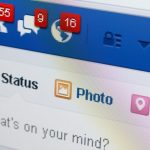
The time has rolled around once again for Facebook to release its twice-yearly report about government data requests. It will perhaps come as little surprise that in the current atmosphere of surveillance and privacy concerns that in the first half of 2015 Facebook received more government data requests than ever before.
The latest figures show that the number of data requests has jumped by 18 percent to 41,214. There was also a massive increase in the number of pieces of content that were taken down or 'restricted' for violating local laws -- a rise of 112 percent. Facebook reiterated previous assertions that it does not provide backdoor access to governments, and reveals that the US is by far the leading requester of data.
The next target for surveillance: the dark web

The surveillance activities of the NSA and GCHQ are well known, and many people hoping to slip under the radar have taken to the 'dark web'. Famous for sites such as Silk Road, as well as being home to illegal content such as child pornography, the dark web may not be a safe haven for much longer.
Joint Operations Cell (JOC) is a new venture in the UK which sees the National Crime Agency (NCA) and GCHQ joining forces. Described as a "genuinely innovative development", the operation aims to home in on online criminals, with a particular focus on crimes involving child exploitation.
UK government started online mass surveillance after 9/11 -- but few politicians knew
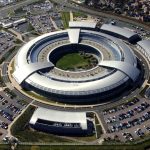
On Wednesday, the Investigatory Powers Bill was published in draft form, but it was in the wake of 9/11 that the UK government started its mass surveillance programs, spying on the online activities of British citizens. Under the guise of the 1984 Telecommunications Act, this surveillance was moved up a gear in 2005. Former deputy Prime Minister Nick Clegg says that very few politicians knew about it.
Clegg only learned of the surveillance programs that were used to harvest emails, phone records, and texts in 2010, and questioned whether it was necessary. The former PM makes the revelations in an article for the Guardian in which he says that after Edward Snowden NSA and GCHQ spying revelations, "the knee-jerk response from the government was to play the man and ignore the ball".
ISPs to be forced to store users' browsing history for a year

The UK government today published a draft version of the Investigatory Powers Bill setting out a framework for new surveillance powers. Among the proposed measures is a requirement for ISPs to keep a record of every website their customers visit for 12 months.
Fears that encryption would be banned were not realized, but privacy campaigners will be disappointed that internet connection records will be accessible by police and security services without the need for a warrant. The NSA-style data collection is indiscriminate. Data will be stored about everyone's internet usage, not just those suspected of crime, terrorism and the like.
Government forced to U-turn on internet spying and encryption ban plans

The UK government has performed an about-face on plans for controversial internet surveillance plans. The "snooper's charter" may have been kept at bay so far, but plans were afoot to force ISPs to retain the browsing histories of their customers. Prime Minister David Cameron had also strongly hinted at a desire to ban the use of strong encryption.
Today Home Secretary Theresa May told the BBC that security agencies such as GCHQ would not be granted the power to check web browsing histories. She also said that an encryption ban would not be implemented. Dismissed by some as little more than 'spin', the U-turn will be widely seen as the government's response to suggestions that any extension to online surveillance powers would be blocked in the House of Lords. While this is something of a climb-down for the government, it is not the end of the battle for privacy groups.
UK police seek power to snoop on the web browsing history of the entire country

The Draft Communications Data Bill (or "snooper's charter") has proved very controversial in the UK, but is yet to be implemented. A key component of the proposed bill is a requirement for ISPs to retain records of every single users' browsing history for a full year. So far the bill has been kept at bay, but now the police are looking to place very much the same requirements on ISPs.
The police have lobbied the government, complaining that traditional methods of surveillance are insufficient to deal with the current levels of online crime. Proposals that the police should be able to access all and any records about someone's online activity without the need for a warrant are already viewed as an invasion of privacy, but police demands are all the more controversial since the snooper's charter was successfully blocked by the Liberal Democrats.
Europe wants to protect 'human rights defender' Edward Snowden from the US
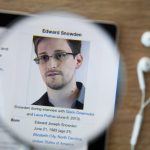
Edward Snowden could have a new friend, and place of exile, in Europe. Currently in Russia, Snowden today found himself the subject of an EU vote seeking to drop any criminal charges against the former NSA contractor.
The vote passed 285 to 281 and is likely to upset the US. This is because member states are also looking to extend protection to Snowden and prevent extradition by third parties, calling him an "international human rights defender".
UK government says app developers won’t be forced to implement backdoors

The UK government is sending mixed messages about how it views privacy and security. Fears have been mounting since Prime Minister David Cameron wondered aloud "in our country, do we want to allow a means of communication between people which we cannot read?" -- his view obviously being that, no, we don’t want to allow such a thing.
Following the revelations about the spying activities of the NSA and GCHQ, public attention has been focused more than ever on privacy and encryption, Cameron having also suggested a desire to ban encryption. Today, some fears were allayed when it was announced that the government was not seeking to require software developers to build backdoors into their products. That said, the government said that companies should be able to decrypt 'targeted' data when required, and provide access to it.
Wikimedia case against NSA spying thrown out of court

A lawsuit brought against the NSA by Wikimedia and eight other plaintiffs has been dismissed by a federal judge. American Civil Liberties Union (ACLU) filed the case on behalf of the Wikimedia Foundation alleging that the NSA had engaged in mass surveillance of Wikipedia users.
Joined by the likes of Human Rights Watch and Amnesty International USA, Wikimedia complained about the NSA's upstream surveillance as revealed by Edward Snowden. The ACLU suggested that the sheer volume of traffic Wikipedia receives means that the US government's surveillance must have included spying on the activities of Wikipedia users. Judge T.S. Ellis disagreed, saying that the plaintiffs did not have plausibility -- or size -- on their side.
D-Link announces 180 degree Wi-Fi cameras (DCS-2630L and DCS-960L)
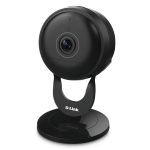
Having cameras in one's home was once was reserved for the wealthy -- they were expensive and usually required professional installation. Thanks to modern technology, especially Wi-Fi, home surveillance can be achieved by anyone. Of course, not all cameras are created equal -- performance and quality will vary by both price and manufacturer.
Today, D-Link announces two new Wi-Fi cameras that are packed with features, but more importantly, they are affordable too. The coolest aspect? They offer 180 degree recording, something you do not typically see at this price. Of course, you also get D-Link's legendary quality and dependability.
Politicians panic after law change could leave them open to surveillance

The world of politics is filled with people who many would consider to be out of touch with real life. All too often politicians are treated differently, and this has certainly been the case when it comes to NSA and GCHQ surveillance of phone and internet traffic. In the UK a court has ruled that a ban on intercepting politicians' communication is not valid.
The Wilson Doctrine -- named after former prime minister Harold Wilson -- stated that "there [will] be no tapping of the telephones of Members of Parliament". This has now been ruled to have no legal force, sending politicians into a fit of panic. They are due to hold an emergency debate next week.
Hillary Clinton wants Edward Snowden to stand trial

Hero or villain? Opinion is very much divided about Edward Snowden. For Hillary Clinton there is no question -- he is a villain who broke US law and should face trial. The NSA contractor became a topic for discussion between Clinton and Bernie Sanders at last night's presidential debate, and the two candidates had slightly differing views of how he should be treated.
Snowden has said that he would be willing to serve time in jail, going as far as offering himself up to the government. He says that he has received no response -- something that would apparently be very different if Clinton succeeds in her presidential bid. While Clinton is taking a hard line, Sanders offers more leniency.
Top court rules European-US Safe Harbor data sharing agreement invalid
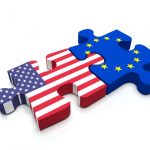
The European Court of Justice has ruled that the Safe Harbor agreement that is in place between technology companies is invalid. The agreement covers the sharing of data between the EU and the US but the court said there are insufficient privacy and data protection checks in place.
European law dictates that data should only be shared with and transferred to countries that offer a comparable level of data protection to the EU. The Safe Harbor agreement has been in operation for around 15 years, but after concerns that European data could be shared with the likes of the NSA it means that companies such as Facebook, Google, and Apple could be sharing data illegally.
Snowden says GCHQ's Smurf programs can tap, hack, and control any smartphone

In an interview with BBC Panorama, Edward Snowden made further revelations about the capabilities of government agencies. Having blown the whistle on the NSA, Snowden has also shed light on the activities of the UK equivalent, GCHQ.
In tonight's interview, the former NSA contractor spoke of the agency's "Smurf Suite" -- a collection of tools that can be used to intercept and control smartphones, even if they're turned off. Named after the blue cartoon characters, the Smurf tools can be deployed via encrypted text message without alerting the handset owner.
Recent Headlines
Most Commented Stories
BetaNews, your source for breaking tech news, reviews, and in-depth reporting since 1998.
Regional iGaming Content
© 1998-2025 BetaNews, Inc. All Rights Reserved. About Us - Privacy Policy - Cookie Policy - Sitemap.